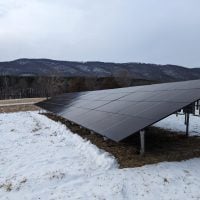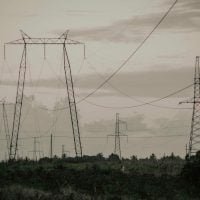Local governments play a pivotal role in the development and implementation of energy projects, serving as the bridge between community needs and broader energy policies. They are often the first point of contact for residents seeking information about energy initiatives, making them essential in shaping local energy landscapes. Local governments have the authority to regulate land use, issue permits, and enforce environmental standards, which are critical components in the planning and execution of energy projects.
Their involvement ensures that projects align with community values and priorities, fostering a sense of ownership among residents. Moreover, local governments can facilitate partnerships between various stakeholders, including non-governmental organizations (NGOs), private sector entities, and community groups. By acting as conveners, they can bring together diverse perspectives to create comprehensive energy strategies that address local challenges.
This collaborative approach not only enhances project viability but also promotes sustainable practices that benefit both the environment and the community. Understanding this multifaceted role is crucial for NGOs aiming to engage effectively with local governments in energy initiatives. Are You Working on Solar Innovation or Clean Energy Access? Join us to receive updates.
Key Takeaways
- Local governments play a crucial role in energy projects, from policy and regulatory support to technical assistance and capacity building.
- Identifying common goals and objectives is essential for successful collaboration between local governments and energy project stakeholders.
- Building relationships and establishing trust is key to fostering effective partnerships between local governments and energy project stakeholders.
- Leveraging local government resources can help maximize the impact of energy projects and ensure efficient use of available resources.
- Engaging in collaborative planning and decision-making allows for a more inclusive and comprehensive approach to energy project development.
Identifying Common Goals and Objectives
Establishing common goals and objectives is fundamental to the success of any energy project involving local governments. NGOs must first conduct thorough assessments to understand the specific energy needs and priorities of the communities they serve. This involves engaging with local stakeholders to identify shared aspirations, such as reducing energy costs, increasing renewable energy usage, or enhancing energy efficiency.
By aligning their objectives with those of local governments, NGOs can create a unified vision that resonates with both entities. For instance, if a local government aims to reduce greenhouse gas emissions by a certain percentage over the next decade, an NGO can tailor its energy project to support this goal. This might involve proposing initiatives like community solar programs or energy efficiency retrofits that directly contribute to the local government’s targets.
By clearly articulating how their projects align with local objectives, NGOs can foster collaboration and increase the likelihood of securing support from government officials.
Building Relationships and Establishing Trust

Building strong relationships with local government officials is essential for NGOs seeking to implement energy projects. Trust is a critical component of these relationships, as it fosters open communication and collaboration. NGOs should prioritize regular engagement with local leaders, attending council meetings, and participating in community forums to establish their presence and demonstrate commitment to local issues.
By being visible and approachable, NGOs can cultivate a reputation as reliable partners in energy initiatives. Additionally, sharing success stories from previous projects can help build credibility and trust. When local governments see tangible results from an NGO’s past efforts—such as increased renewable energy adoption or improved community resilience—they are more likely to view future collaborations favorably.
Establishing trust takes time and consistent effort; however, the rewards are significant, as strong relationships can lead to more effective partnerships and successful project outcomes.
Leveraging Local Government Resources
Local governments often possess valuable resources that NGOs can leverage to enhance their energy projects. These resources may include funding opportunities, technical expertise, or access to data on local energy consumption patterns. NGOs should actively seek to understand what resources are available within their local government and how they can be utilized effectively.
For example, many municipalities have grant programs aimed at supporting renewable energy initiatives or energy efficiency upgrades that NGOs can tap into. Furthermore, local governments may have established relationships with utility companies or other stakeholders that can be beneficial for NGOs. By collaborating with these entities, NGOs can gain insights into best practices and innovative solutions that have been successful in similar contexts.
This collaborative approach not only maximizes available resources but also strengthens the overall impact of energy projects within the community.
Engaging in Collaborative Planning and Decision-Making
Collaborative planning is essential for ensuring that energy projects meet the needs of the community while aligning with local government priorities. NGOs should actively involve local government representatives in the planning process from the outset. This can be achieved through workshops, focus groups, or joint planning sessions where stakeholders can discuss their visions for energy development.
By fostering an inclusive environment where all voices are heard, NGOs can create a sense of shared ownership over the project. In addition to engaging local officials, it is crucial to involve community members in decision-making processes. This can be done through public consultations or surveys that gather input on proposed energy initiatives.
By incorporating feedback from residents, NGOs can ensure that projects are not only technically sound but also socially acceptable. This collaborative approach enhances transparency and builds community support, which is vital for the long-term success of energy projects.
Advocating for Policy and Regulatory Support

Advocacy plays a significant role in shaping the policy landscape for energy projects at the local level. NGOs should work closely with local governments to identify regulatory barriers that may hinder project implementation. By understanding the existing policies and regulations governing energy development, NGOs can advocate for necessary changes that promote sustainable practices and facilitate project success.
For example, if a local government has restrictive zoning laws that limit the installation of renewable energy systems, NGOs can collaborate with officials to propose amendments that encourage clean energy development. This may involve conducting research to demonstrate the benefits of such changes or mobilizing community support to show policymakers that there is a demand for more progressive energy policies. Effective advocacy requires persistence and strategic communication; however, it can lead to significant advancements in local energy frameworks.
Providing Technical Assistance and Capacity Building
Technical assistance is a critical component of supporting local governments in implementing successful energy projects. NGOs can offer expertise in areas such as renewable energy technologies, energy efficiency measures, or financing mechanisms. By providing training sessions or workshops for local officials and staff, NGOs can enhance their capacity to manage and execute energy initiatives effectively.
Capacity building also extends to community members who may lack knowledge about available energy resources or programs. NGOs should develop educational materials and outreach campaigns that empower residents to take advantage of energy-saving opportunities. For instance, hosting informational sessions on how to access rebates for solar installations or energy-efficient appliances can significantly increase community participation in energy programs.
By equipping both local governments and residents with the necessary knowledge and skills, NGOs can foster a culture of sustainability within the community.
Creating Opportunities for Community Engagement and Participation
Community engagement is vital for ensuring that energy projects are embraced by residents and meet their needs effectively. NGOs should prioritize creating opportunities for meaningful participation throughout all stages of project development. This could involve organizing public forums where community members can voice their concerns or share ideas about proposed initiatives.
By actively soliciting input from residents, NGOs can build trust and demonstrate that their perspectives are valued. Additionally, involving community members as stakeholders in project implementation can enhance ownership and accountability. For example, establishing volunteer programs where residents assist with outreach efforts or participate in project monitoring can foster a sense of pride in local initiatives.
When individuals feel personally invested in an energy project, they are more likely to support its success and advocate for its continuation.
Ensuring Accountability and Transparency
Accountability and transparency are essential principles that underpin successful collaborations between NGOs and local governments in energy projects. NGOs should establish clear expectations regarding roles and responsibilities from the outset of any partnership. This includes defining how decisions will be made, how progress will be tracked, and how outcomes will be reported to stakeholders.
Regular communication is key to maintaining transparency throughout the project lifecycle. NGOs should provide updates on project milestones, challenges faced, and lessons learned to both local government officials and community members. This openness fosters trust and encourages ongoing engagement from all parties involved.
Additionally, establishing mechanisms for feedback allows stakeholders to voice concerns or suggestions for improvement, further enhancing accountability within the partnership.
Monitoring and Evaluating Project Impact
Monitoring and evaluation (M&E) are critical components of any successful energy project, providing insights into its effectiveness and areas for improvement. NGOs should develop robust M&E frameworks that outline key performance indicators (KPIs) aligned with project goals. These KPIs may include metrics related to energy savings achieved, greenhouse gas emissions reduced, or community engagement levels.
Regularly assessing project impact allows NGOs to make data-driven decisions about future initiatives while demonstrating accountability to local governments and community members. Sharing evaluation results not only highlights successes but also identifies challenges that need addressing moving forward. By fostering a culture of continuous improvement through M&E practices, NGOs can enhance their effectiveness in delivering impactful energy solutions.
Celebrating Successes and Sharing Lessons Learned
Celebrating successes is an important aspect of sustaining momentum in energy projects while fostering a positive relationship between NGOs and local governments. Recognizing achievements—whether through public events, press releases, or social media campaigns—can help raise awareness about the benefits of collaborative efforts in advancing sustainable energy solutions. Moreover, sharing lessons learned from both successes and challenges encountered during project implementation is invaluable for future initiatives.
By documenting experiences and disseminating findings through reports or case studies, NGOs contribute to a growing body of knowledge that can inform best practices across different contexts. This not only enhances their credibility but also positions them as thought leaders within the field of sustainable energy development. In conclusion, effective collaboration between NGOs and local governments is essential for advancing successful energy projects that meet community needs while promoting sustainability.
By understanding each other’s roles, identifying common goals, building trustful relationships, leveraging resources, engaging in collaborative planning, advocating for supportive policies, providing technical assistance, fostering community engagement, ensuring accountability, monitoring impacts, and celebrating successes—NGOs can create meaningful change in their communities’ energy landscapes.









































